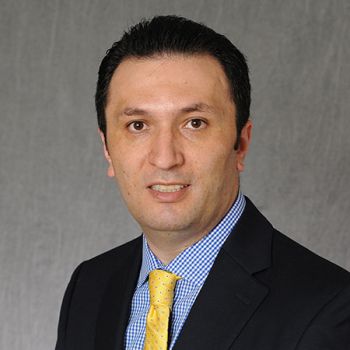
WASHINGTON (Sept. 19, 2014) — Shahram Majidi, M.D., a second-year resident in the Department of Neurology at the George Washington University School of Medicine and Health Sciences, received at $154K grant from the American Heart Association to study the presence of diffuse brain swelling and injury in patients with intracerebral hemorrhage (ICH).
“According to epidemiological studies, intracerebral hemorrhage accounts for less than 20 percent of all strokes, but is the least treatable form of stroke, with the highest rate of morbidity and mortality. In fact, the 30-day mortality rate of patients with intracerebral hemorrhage has been estimated at up to 50 percent,” said Majidi. “Cost analysis studies estimate the annual financial burden of intracerebral hemorrhage in the U.S. to be more than $6 billion.”
Although previous research has focused on looking at swelling near the site of a blood clot and its impact on ICH prognosis, recent data suggests that neuronal injury in an area of the brain distant from the site of the bleed is frequent. Previous research by Majidi confirmed this happening in patients with ICH. He found that 40 percent of patients with this type of stroke had an increase in brain volume, not related to the actual hemorrhage or surrounding area. With this growing body of evidence regarding possibility of the presence of global brain injury in ICH, Majidi will use this grant to study this phenomenon on a larger scale, with a larger number of patients.
Majidi’s work is a supplementary study of the ongoing phase III clinical trial, ATACH II. He will utilize the trial’s clinical data and CT scans, collected at standard time points, to perform his study. The calculated samples size for his study is 354 patients.
“This grant provides us with the unique opportunity to study the presence of global brain injury and its impact on clinical outcome in a large number of patients with ICH,” said Majidi. “Hopefully, the result of our study will expand our knowledge and understanding about the pathophysiology of ICH and help us in implementing more effective new treatment strategies in the future.”


